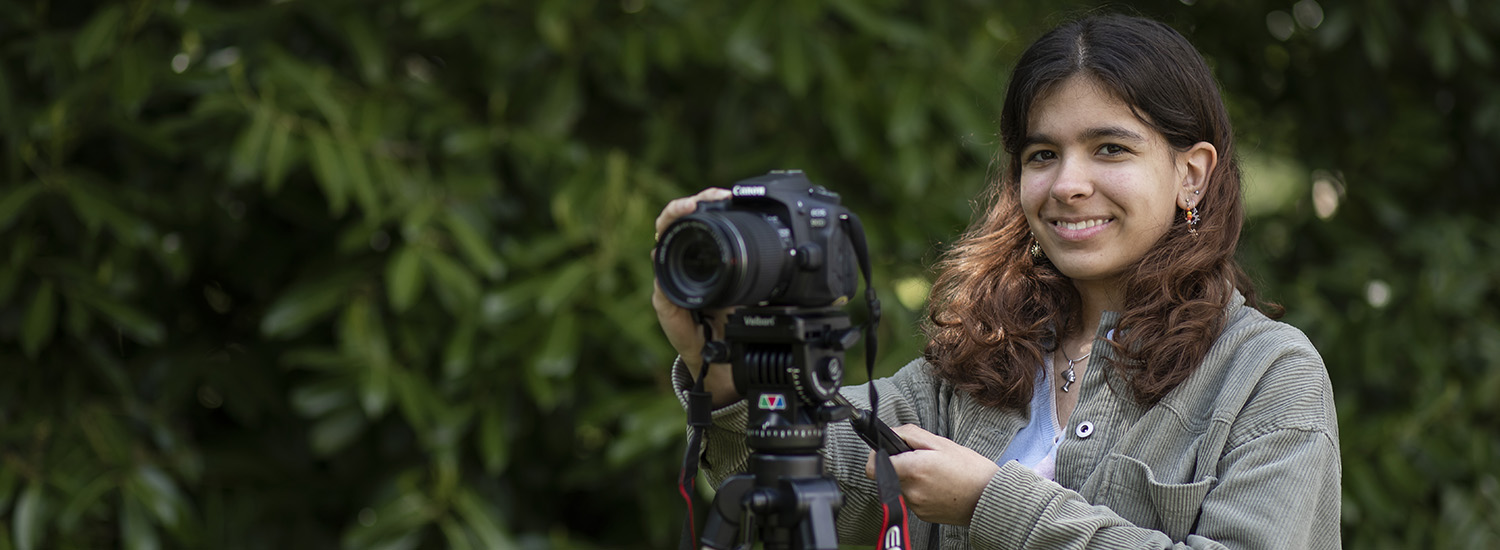Hello and welcome to Film Studies A Level. This course has joint leadership roles: Yvonne McCoach in charge of the examinations component and Jonathan O’Hara the practical Non-Exam Assessment (NEA).
To help familiarise you with the Film Studies A Level, please take a look at our Welcome Video. To give you a full understanding of the differences between the 3 courses offered by the Film and Media Department at Reigate College, please take a look at our course pages: Film Studies A Level, Media Studies A level and Creative Digital Media Production, BTEC Level 3 Extended Certificate.
The Film Studies programme has an exciting mix of practical and theory work so we’re really glad you’ve chosen to study it at advanced level. For many of you, this subject will be brand new, so we’re setting some activities for you to complete independently from home as preparation. Even if you have some prior knowledge, these tasks will give you an introduction to the skills and standard required at advanced level. We hope you enjoy the activities.
The tasks are organised in three distinct steps and should all be completed by Choices Day on 27 August 2025. This is to give you the best insight into what the courses will be like and/or help prepare you for them.
Please note, some Course Leaders (for example for Music) may release their tasks earlier, as they may form part of the College’s audition process. If this applies to you, you’ll be notified separately.
New Starters Course Tasks and Activities
| Release date | Suggested Completion Dates | |
| Explore your Subject | 1 June | 1 July |
| Get Going | 1 June | 1 August |
| Aim High | 1 June | 1 September |
Have you ever wondered how film can create such wide and varied emotions?
What specific emotions have you felt whilst watching a film?
In Film Studies you’ll learn how filmmakers create emotion and meaning using camera moves, lighting, sound, locations and editing, to name just a few.
You’ll then make your own short films (one each year of the course) and get a chance to create your own meaning and emotions.
We study what might influence a filmmaker: history, politics, cultural context. We also look at films from different countries, and filmmakers who have decided to break what we think of as film ‘rules’.
As a taster, have a look at this film and analyse how emotions such as fear, tension and relief have been created using film techniques.
The first film you will study on Film Studies A Level will be Spike Lee’s Do the Right Thing (1989)
Watch the trailer and consider what messages the director wanted to convey.
Then see if you can identify six specific film techniques used and write down what reason you think they were adopted. Consider shot size, where the camera is positioned (low down or high up), camera moves, lighting and the colour palette adopted and the emotions created.
Use this film language app to make sure you use correct filmic terminology (click an icon and the definition will pop up).
The second film you will study is Citizen Kane. Despite it being released in 1942, it is still considered by many as the best film of all time.
Read the article below that considers why Citizen Kane may still be the greatest film of all time.
https://www.thecollector.com/citizen-kane-greatest-film-all-time/
Then write a brief summary in your own words. Make sure you know what the following terms and information are:
- Modernism
- Naturalism
- Expressionism
- The Hollywood studio system
- Who was Orson Welles?
- What had he done before he produced, directed and starred in Citizen Kane?
We look forward to seeing you in September!




